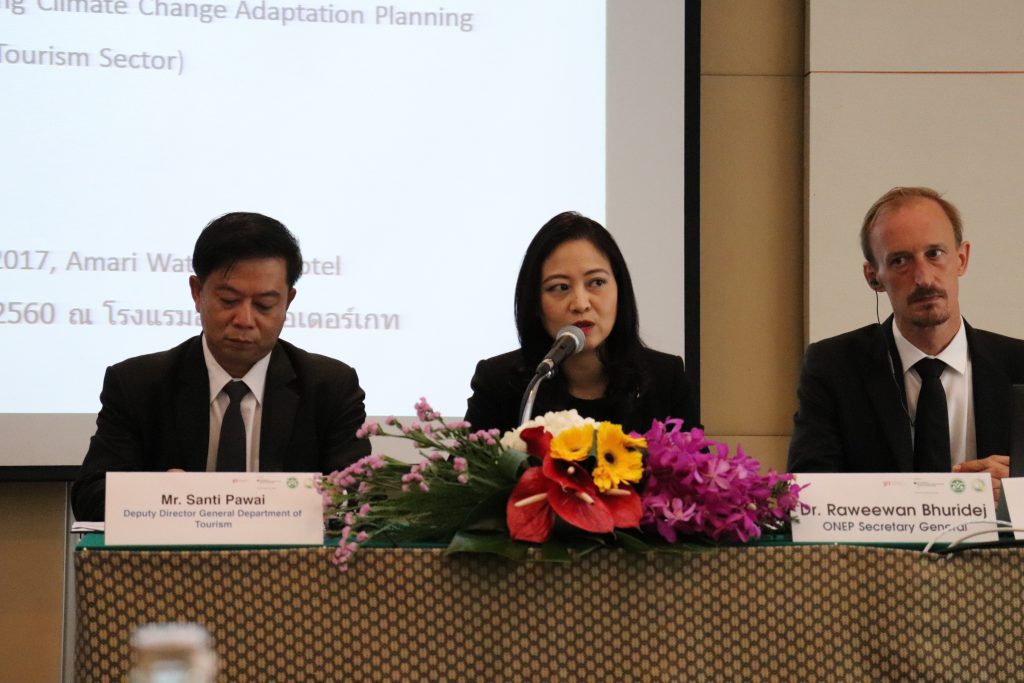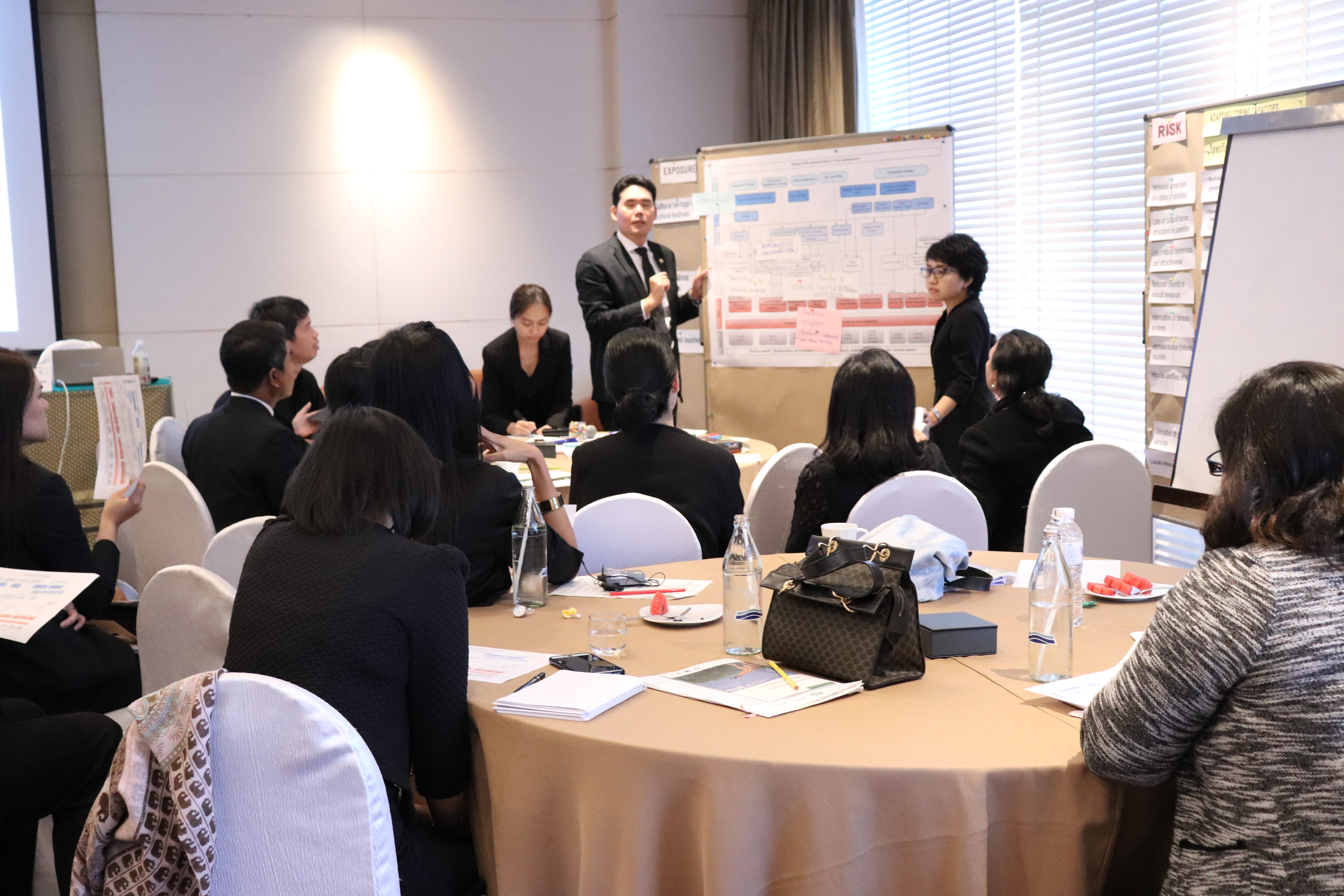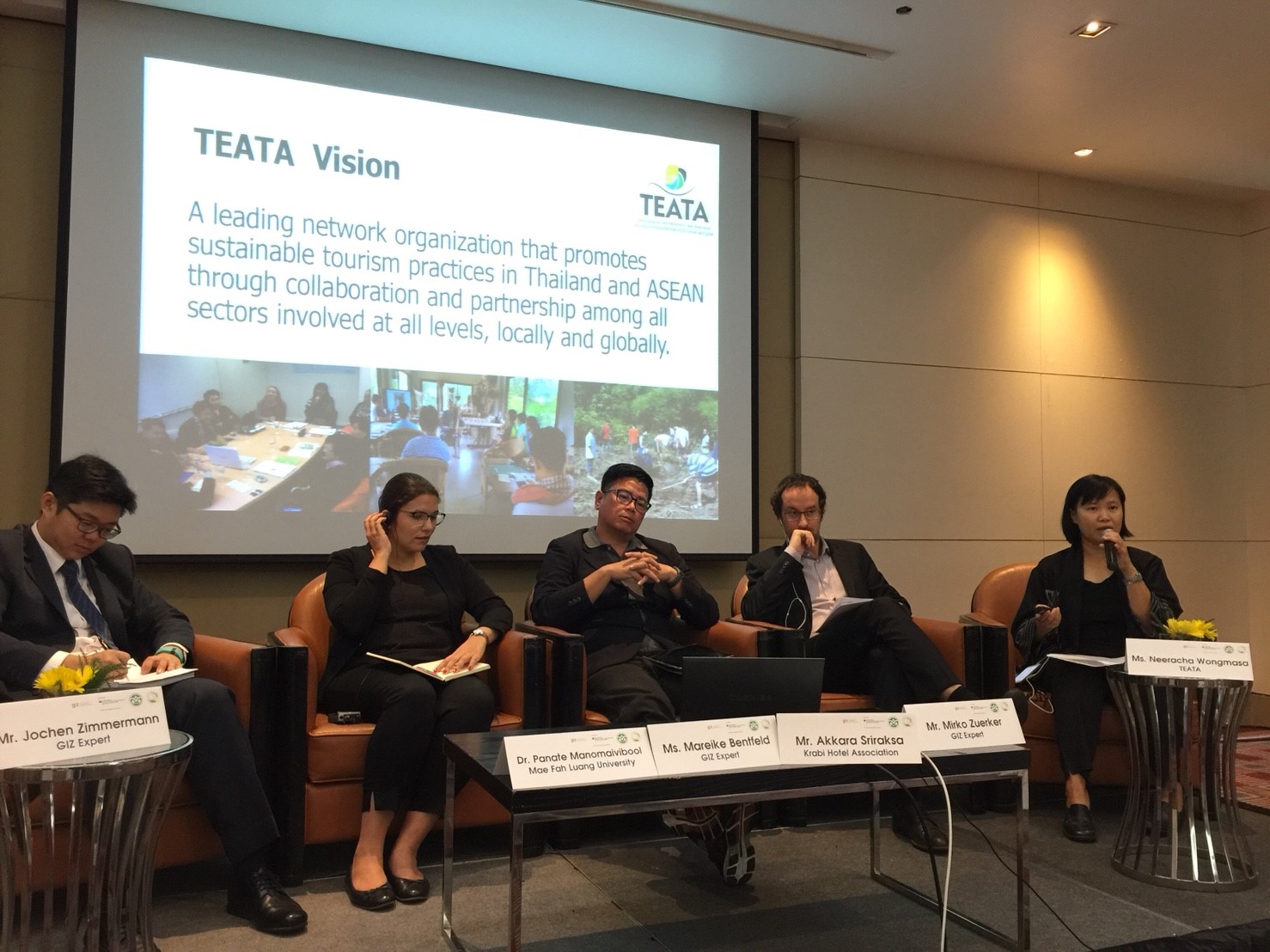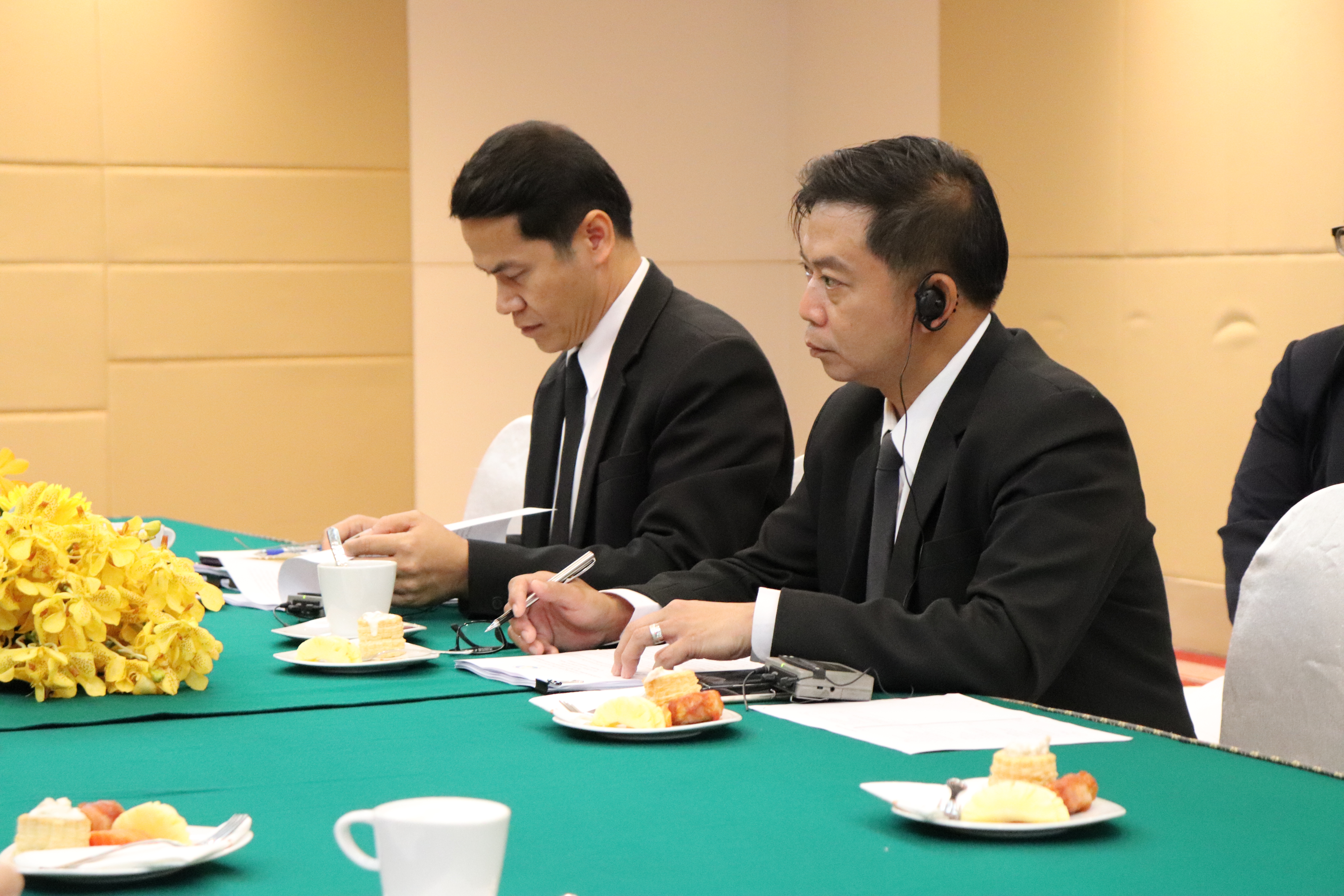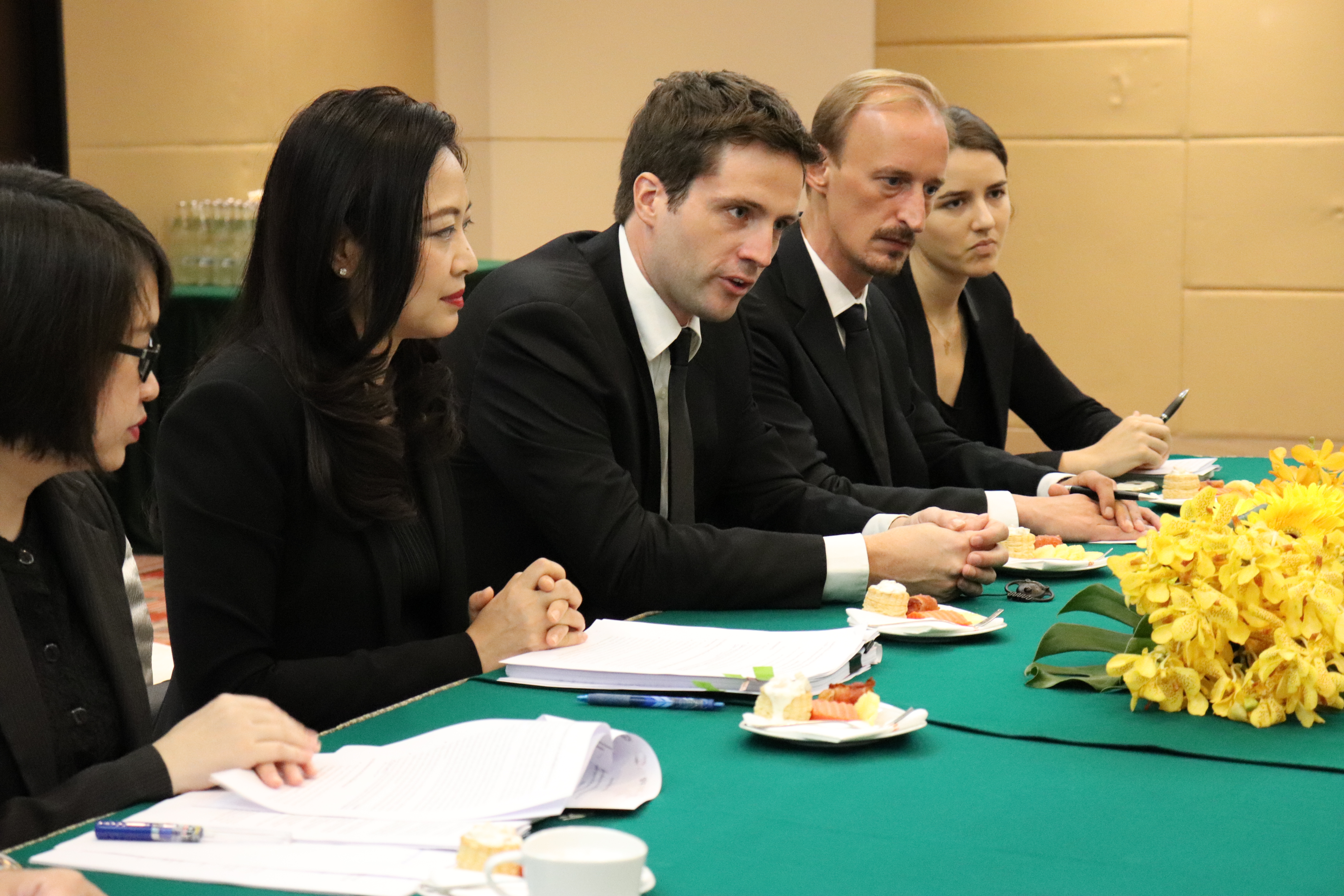On 18-19 October, GIZ Thailand through Risk based National Adaptation Plan Project together with Office of Natural Resources and Environmental Policy and Planning (ONEP), national climate change adaptation focal point, and Department of Tourism (DoT) joined hands to organize kick off workshop on mainstreaming climate change adaptation into tourism sector at Amari Water Hotel. The aims of this workshop are to create mutual understanding of different stakeholders on plausible climate risks to tourism sector, create an institutional and knowledge platform, and illustrate economic benefits the private sector gain when moving towards climate resilient tourism development.
In this regard, in the morning of 18th October, the high level political talk among Mrs. Raweewan Bhuridej, Secretary General ONEP, Mr. Santi Pawai, Deputy Director General DoT, and Mr. Tim Mahler, Director Climate and Environment Thailand (GIZ) was held to enrich the three parties’ cooperation for the implementation of climate change adaptation, especially in tourism sector, in Thailand.
During the 2 day workshop, the stakeholders from planning, policy makers, tourism related business enterprises, as well as academia have received various input and exchange their views in regard to climate change impacts, its consequences, as well as proposed institutional, economics, tools to mitigate risk from climate change. The first day begins with the panel discussion on “Tourism and Climate Change Impact: new realities of tourism in the era of climate change”, a technical input on pathway to climate resilient tourism development and climate change impact chain. Apart from the technical inputs, the participants helped verifying the climate change impact chain in tourism sector that was developed last year. The make a perfect transition to the second day, the technical input on role of insurance in climate risk management to emphasize engagement of private sector.
On the second workshop day, the panel discussion on “The benefits for private sector in driving resilient tourism development – economic interest and opportunities for businesses” encouraged private sector stakeholders to be involved in a process of climate change adaptation. Last but not least, the stakeholders were grouped to find expectations of private sector actors from policymakers and planners (and vice-versa) as well as how to utilize existing institutional structure to move forwards climate resilient tourism development.
Workshop Materials
Climate Change and Tourism
2nd National Tourism Development Plan
Tourism and CCA: implications for SEA
Sustainable Tourism Standards and Climate Change
Experience on from private sector adaptation in tourism sector in Costa Rica
Tourism Climate Change Impact Chain
Climate Risk Management Insurance in Tourism Sector
Hotel Resilience
Status Quo of CCA in Thai Tourism Sector
